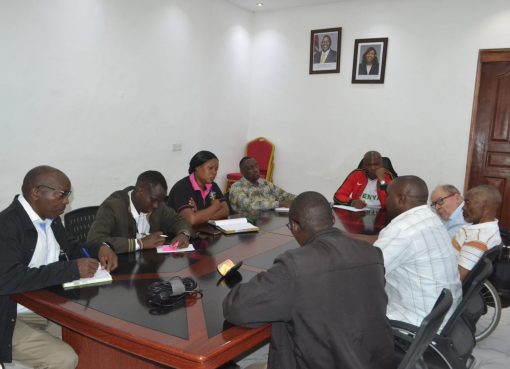The Ministry of ICT, Innovation and Youth Affairs, UNESCO and Huawei are working together to see to it that Information and Communication Technology skills are integrated at different professional levels to benefit recipients.
The move follows the growing national demand for highly specialized ICT skills across multiple industries, which calls for an understanding on how organizations work and process ideas, with possible solutions to the myriad of problems facing Kenya’s economy.
In a speech read on his behalf by Secretary Administration in the same State Department, Ms Lucy Mulili, during the national awards ceremony for finalists in the global Huawei ICT competition in Nairobi, the PS said that Kenya’s human capital demand will continue to grow as the economy expands.
“The evolving nature of our economy, which now has a large digital component, requires our people to adjust rapidly to the shifting demands for skills and the emerging technologies that are driving this demand,” added Ochieng.
He said the Huawei competition not only goes a long way towards creating jobs, but also promote innovations and digital solutions that can help achieve the goals envisaged in development blueprints such as the Big 4 Agenda, Vision 2030 and the United Nations Sustainable Development Goals (SDGs).
“We acknowledge the integration of innovation as one of the competition’s tracks as a way of encouraging the students to be globally competitive as they embrace emerging technologies such as 5G, Cloud and Artificial Intelligence,” he noted.
The PS on behalf of the Ministry of ICT, Innovation and Youth Affairs, thanked Huawei for its tremendous commitment and support towards building capacity amongst students and institutions of higher learning.
In his remarks, the UNESCO Chief of Education for Eastern Africa, Saidou Jallow, said that for the worker of the future to withstand disruptions in training and to ensure that more women are included in roles that utilize emerging technologies such as cloud computing, machine learning and artificial intelligence, it requires a fresh approach that prioritizes market-oriented content.
“It is incumbent on various industry players to include their situational issues in the learning content and thus present the students and tutors with practical knowledge opportunities that enable them to create workable solutions in today’s innovation-hungry economy,” explained Jallow, adding that the framework developed in partnership with more than 40 universities and colleges is designed to deepen ICT knowledge for all personnel.
During the ceremony, Huawei announced the winners of the 2021-2022, Huawei ICT Competition national finals, where the prizes were presented to six National Finalists in addition to six teams of eighteen students that will be proceeding to the regional finals.
Terence Omondi from the Jomo Kenyatta University of Agriculture and Technology and Rush Morgan from the United States International University emerged top in the network and cloud tracks respectively.
The Director Enterprise Business Group Huawei Kenya, Kevin Wen, stated that the success of the Huawei ICT competition can only be attributed to the strong partnership Huawei has built with various institutions of higher learning.
Huawei also presented the team that will be battling on behalf of Kenya at the African competition level, which comprises of three teams competing under the Network Track from The University of Nairobi, JKUAT and Machakos University, two teams representing the Cloud track from Kenyatta University and Laikipia University and one team under the Innovation Track from Kenyatta University.
The winning teams will compete at the regional finals with counterparts from across Africa at an online event taking place on 19th February.
By Catherine Muindi


